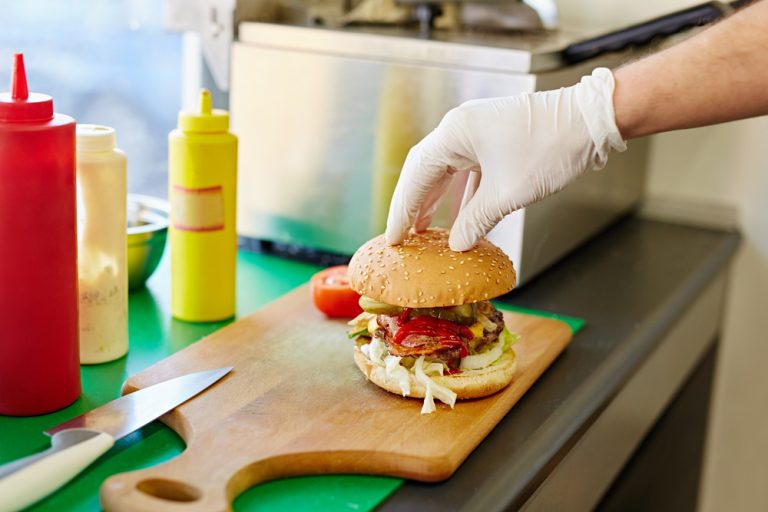Every restaurant owner dreads the call. Someone dined at your establishment, got sick, and is filing a foodborne illness complaint. Health inspections. Fines. Negative reviews. All these and more flash before your eyes. What do you do?
Step 1: Take a breath
According to the Center for Science in the Public Interest (CSPI), Americans are twice as likely to get food poisoning from restaurant food than food cooked at home. It can be caused by anything from careless or improper food handling, to inadequate preparation, to the quality of the ingredients themselves.
Food poisoning incidents are such a regular risk in restaurants that you should already be doing all you can to reduce your foodborne illness liability—and have an action plan for when you do get a foodborne illness complaint.
So what’s your first step when you get a complaint?
Gather as much information as possible
Did the complaint come in over the phone? If so, don’t be defensive. You don’t yet know for sure if your food really caused the illness. Don’t apologize either, because that’s basically admitting fault (which you shouldn’t do–yet).
Ask for as much detail as the complainant can provide. Ask questions like:
- When did they dine with you?
- Who was their server?
- What did they order?
- How many at their table?
- Who else got sick?
All this and more will help your own internal investigation.
But don’t wait for a customer to call. Check the internet regularly for foodborne illness complaints. Many customers will prefer to complain online instead of contacting you directly. In fact, government health agencies are starting to rely on social media and Yelp to detect food poisoning outbreaks.
Responding to an online complaint follows slightly different rules. Both social media and Yelp allow you to respond both publicly and privately, so we suggest you reply to their complaint in public first, to show other readers that you’re taking action, before asking the customer to share the details in private. Be very careful what you say and always keep a respectful and understanding tone. Customers can (and will) copy your conversation and share it with others.
Do an internal investigation
Use the information the customer gave you to find evidence that corroborates their story. If you have time and day information, check through your receipts or POS system to see if they did indeed dine with you at that specific time and if they did order what they claimed.
Once you have that, go through the item/s they ordered. What were the ingredients in those dishes? Were those ingredients still within their use-by date? Who prepared them? Properly labeled ingredients will help simplify this phase of your investigation. Was the food being stored and then served at the proper temperature? Go back and check your temp logs (assuming you’ve got them) to verify this.
You also have to inspect the station and tools used to prep the dish. Are they orderly or cluttered? Are they clean, or dirty? Who prepped the food? Are they sick? Do they have a history of carelessness during food prep?
Save the evidence
If the ingredients from that service are still on the shelf, isolate samples of every element in that batch and put them in the freezer for preservation. Separate them so that the ingredients don’t mix. This is what you will provide the health agency when they test for potential contaminants.
Once you’ve saved the samples, thoroughly clean the station and tools used to prep the food. Throw away any leftover ingredients from that batch as well as any other ingredients that may have gotten contaminated. This will help prevent other diners from getting sick as well as reducing your liability risk.
Report the incident
Be proactive and report the foodborne illness complaint to the government. It’s your responsibility to ensure that the government is aware of any potential foodborne illness outbreaks.
Also, it’s better for your image if you proactively address the complaint instead of the government chasing you down.
The health agency will then conduct their own investigation and request the samples you set aside for testing. They may also inspect the premises for any health code violations. Cooperate with the authorities and you’ll be able to get back to regular operations quickly.
Foodborne illness complaints should never be taken lightly. Train your staff in proper food safety procedures and invest in equipment and facilities that reduce the risk of contamination and spoilage.
Remember: a healthy customer is a happy customer.
